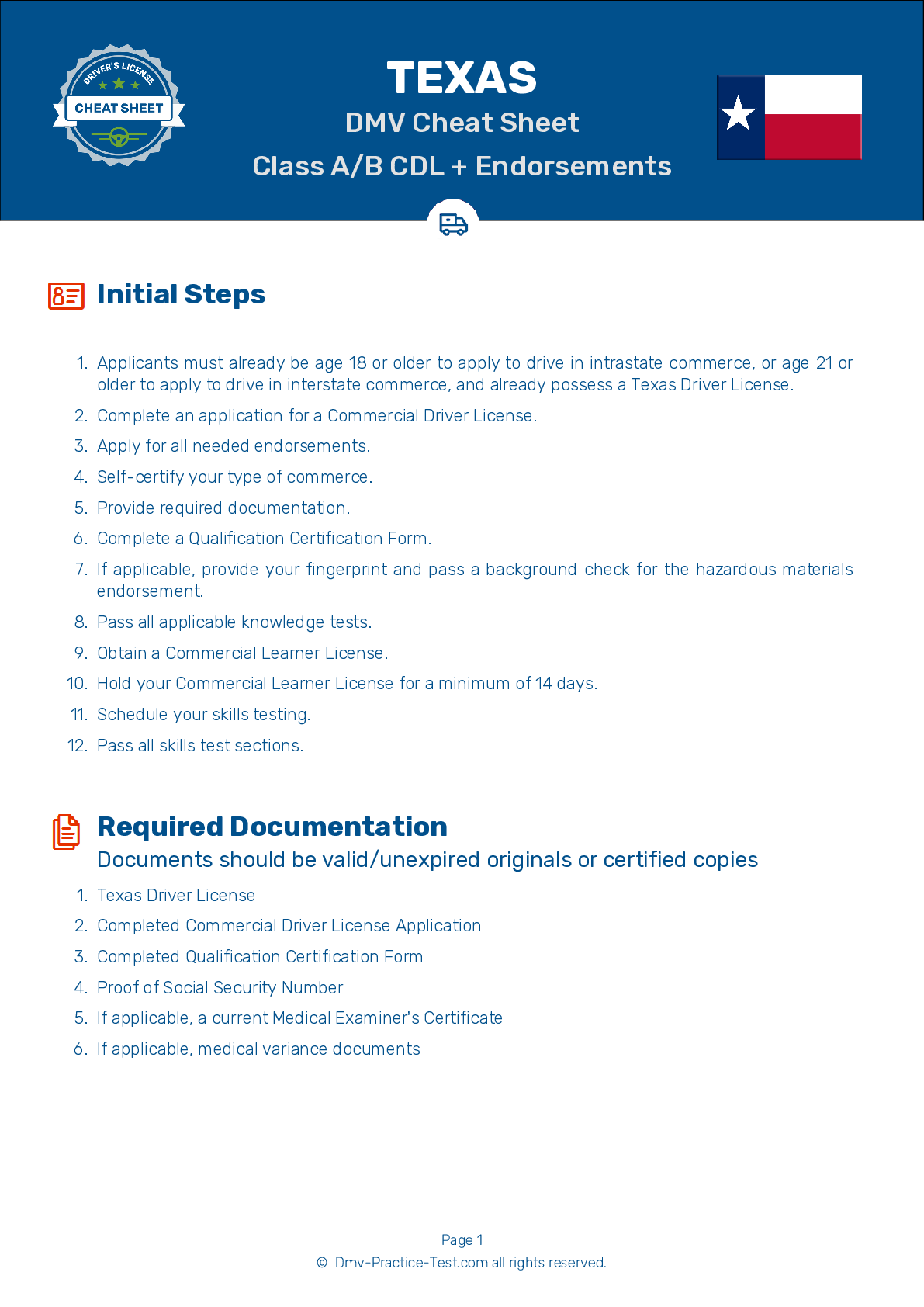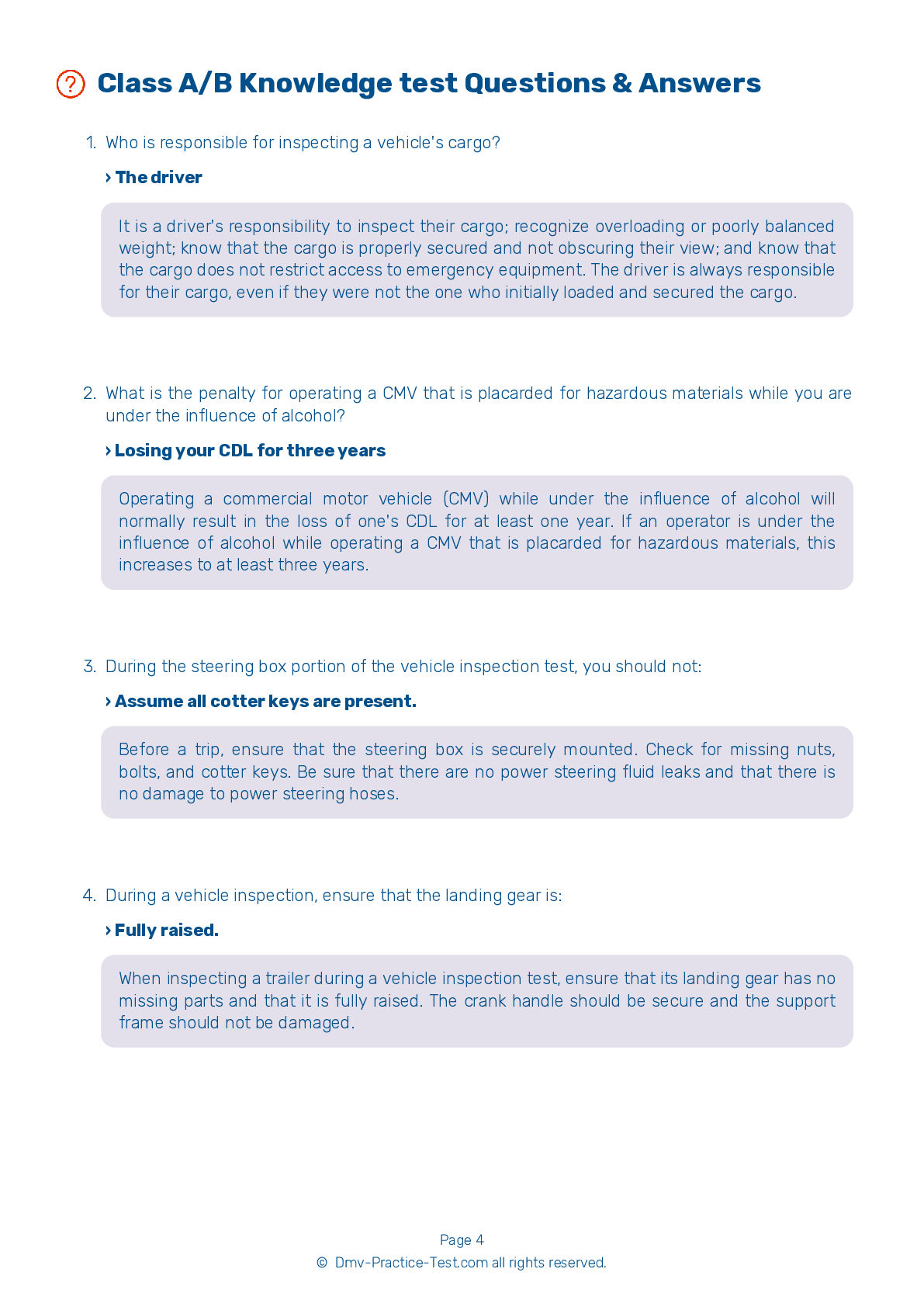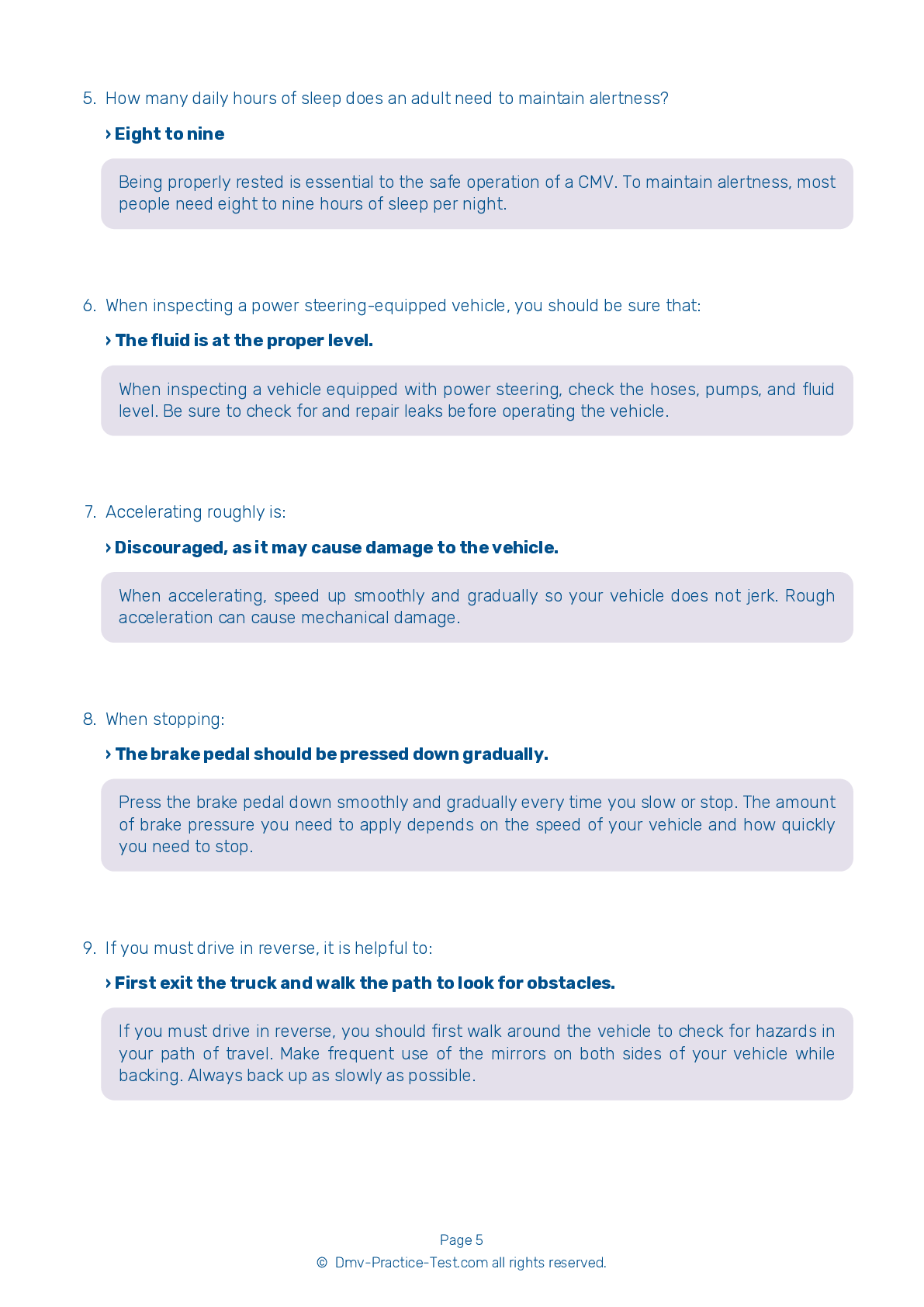Passenger #1
Passenger Endorsement | Texas 2026 #1 Page 3 of 3
Train for FREE with our Texas CDL passenger endorsement practice test online. The official exam test consists of several obligatory parts, with all of them checking your knowledge of different blocks of road rules. If you need to obtain a TX DMV passenger endorsement in 2026, practice as much as possible. Free sample tests published on our website will help you check and improve your knowledge and boost your grades. Please bear in mind that DMV requirements for issuing a CDL permit with passenger endorsement may vary from state to state.
20
16
22
15 . When crossing railroad tracks, you should:
Stay in your lane.
When crossing railroad tracks during the on-road driving skills test, you must not stop, switch gears, pass another vehicle, or change lanes while any part of your vehicle is in the crossing.
16 . In the event of an engine fire, you should not:
Spray from the underside of the vehicle.
In the event of an engine fire, you should turn off the engine as soon as possible. Do not open the hood if you can avoid it. Shoot foam through the louvers or from the vehicle’s underside.
17 . When checking your tires, which of the following is not something that should cause concern?
Dual tires that do not come into contact with each other
When inspecting your tires, be alert to a number of potential problems, including air pressure that is too low or too high; bad wear; cuts; tread separation; dual tires that come into contact with each other or with parts of the vehicle; mismatched tire sizes; radial and bias-ply tires used together; and cut or cracked valve stems. Additionally, verify that there are no regrooved, recapped, or retreaded tires on the front wheels of the bus.
18 . Once stopped as a part of the stop/start maneuver, you should:
Park in front of a fire hydrant.
Once you have stopped as a part of the stop/start maneuver during the on-road driving skills test, you must activate your four-way flashers and shift into neutral or park. You must not block any driveways, intersections, fire hydrants, or signs.
19 . When inspecting the exhaust system, which of the following should not cause concern?
Exhaust system parts that are not rubbing against fuel system parts
When inspecting a vehicle's exhaust system, be alert to a number of potential problems, including loose, broken, or missing exhaust pipes, mufflers, tailpipes, or vertical stacks; loose, broken, or missing mounting brackets, clamps, bolts, or nuts; exhaust system parts rubbing against fuel system parts, tires, or other moving parts of the vehicle; and exhaust system parts that are leaking.
20 . After traveling under an overpass during the driving skills test, you may be asked to recall:
If there was a shoulder near the roadway.
If you drive under an overpass during the on-road driving skills test, your examiner may ask you to recall the posted clearance or height of the overpass.
2026 Texas | Frequently Asked Questions
To acquire a CDL Hazmat endorsement in Texas, you must first have a Commercial Driver's License (CDL). Then, pass the Hazardous Materials Endorsement Knowledge Test at a Texas Department of Public Safety office. After passing, you'll need to undergo a TSA background check. Once cleared, the endorsement will be added to your CDL.
To obtain a CDL Hazmat license, you must first hold a valid Commercial Driver's License (CDL). You must be at least 21 years old and have a clean driving record. You'll also need to pass the Hazardous Materials Endorsement Knowledge Test and undergo a TSA background check. Good vision and physical health are also prerequisites.
When applying for a CDL Hazmat endorsement, you will need your current CDL, proof of U.S. citizenship or legal status (like a birth certificate or green card), and proof of identity and Texas residency. You'll also need your Social Security card and a completed Application for Texas Driver License or Identification Card. Lastly, you'll need to pass a TSA background check.
Yes, there is a dedicated written test for the CDL Hazmat endorsement. Called the Hazardous Materials Endorsement Knowledge Test, it covers topics like loading and unloading hazardous materials, bulk packaging marking, driving and parking rules, and emergency response procedures. This test must be passed to obtain the Hazmat endorsement.
The written test for the CDL Hazmat endorsement covers a range of subjects related to hazardous materials. These include recognizing hazardous materials, safe loading and unloading procedures, proper use of placards and labels, emergency response procedures, driving and parking rules for hazardous materials, and understanding the associated risks and regulations.
Yes, acquiring a CDL Hazmat endorsement comes with additional charges. These include a fingerprinting fee for the required TSA background check, and an endorsement fee. The exact costs can vary, so it's recommended to check with your local Department of Motor Vehicles (DMV) or similar agency for the most accurate information.
Yes, obtaining a CDL Hazmat endorsement requires a background check and security clearance. The Transportation Security Administration (TSA) conducts the check, which includes fingerprinting and a review of criminal, immigration, and terrorism records. This process is necessary to ensure the safety and security of hazardous materials transportation.
Yes, specialized training is required for the CDL Hazmat endorsement. Applicants must pass a written test, and in some cases, a driving test with a vehicle that carries hazardous materials. Once passed, this endorsement is added to your Commercial Driver's License (CDL). Regular renewal of this certification is also required.
No, you cannot legally transport hazardous materials without a valid Commercial Driver's License (CDL) with a Hazardous Materials (Hazmat) endorsement in the United States. This requirement ensures that drivers have the necessary training and knowledge to handle such materials safely, protecting public safety and the environment.
Yes, you can add the CDL Hazmat endorsement to your current CDL. You don't need to apply for a new CDL. However, you must pass the Hazmat knowledge test, undergo a TSA background check, and pay the required fees. Once completed, the endorsement will be added to your existing CDL.



